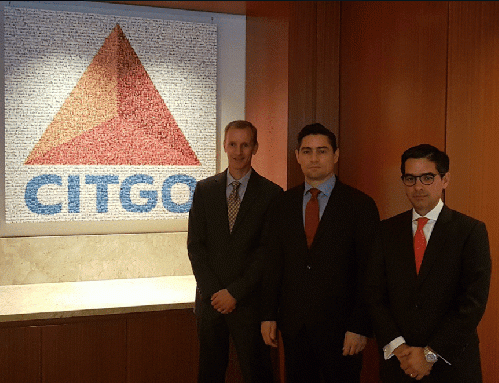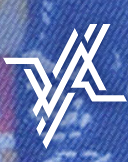
Guaido's team has been fighting for control of Citgo. (Archive)
(Image by File Poto Venezuela Analysis) Details DMCA
Vecchio has treated the uncomfortable episodes as background noise, focusing instead on his June 18 press conference on the US Navy ship USNS Comfort. Once on deck, Vecchio will stand shoulder-to-shoulder with Vice President Mike Pence and the head of US Southern Command. Then the hospital ship will set sail toward South America in another provocative stunt aimed at undermining the country's sovereignty.
The coup might have lost course in Caracas, but Vecchio's lobbying for intervention from DC is going full steam ahead.
In the years leading up to this pivotal moment, Vecchio has passed through a pipeline of elite east coast institutions, smoothed by scholarships and grants signed off on by the US government.Considering his trajectory, it's no surprise then that Vecchio's journey would eventually lead him straight to Washington DC.
"I realized that I need to be a part of the change that I wanted to see," Vecchio told The Yale Globalist.
A central character in Trump's coup, with longstanding ties to one of the oil companies behind the regime-change push, Vecchio is playing his part with precision. Told on the pages of an autobiography, in interviews with glossy Ivy League magazines, and through USAID financial filings, his story distills the essence of Venezuela's opposition.
The education of Nià �o CarlosNestled in a lush valley sprawling amidst the mountainous northeastern state of Monagas, the farming municipality of Caripe was the backdrop for Carlos Vecchio's childhood. Home to one of Venezuela's landmark national parks, the Gua'charo Caves, Caripe is a sleepy township filled with coffee plantations and other mild temperature crops like potatoes and berries. By the time Carlos was born in the Monagas state capital of Maturin in 1969, the Vecchio clan had been living in Caripe for a little less than a century.
According to Vecchio's 2018 autobiography, "Free: The Birth of a New Venezuela," his great grandfather, Rafaelle, arrived from Italy to eastern Venezuela around 1889. Vecchio's father, Rafael, was a politician, serving three terms as a local councilman. In memoirs and interviews, Carlos painted his father as a committed man of the people. Tasked with settling disputes and overseeing the local land registry, Rafael was charged with overseeing Caripe's landowning class as a member of the center-right Copei party.
"My father was a politician, so it is in my blood," Vecchio reflected during an interview with the unironically named Yale Globalist.
Over the years, Copei faithfully represented the interests of the church hierarchy, landowners and Venezuelan oligarchy within government halls. Rafael Vecchio not only served Copei as a councilman and candidate for Caripe mayor, but as the party's Regional Secretary as well.
"Even though I was just a child, I had participated in many political rallies, particularly in the municipalities of [Caripe], following my father around," recalled Vecchio during a conversation with The Politic.
"I felt that it was my responsibility to go into politics after watching my father's efforts."
When the time came for Vecchio to relocate to Venezuela's capital for work, like many politically ambitious youngsters, he opted to study law. In 1992, the same year Hugo Chavez was catapulted into the national spotlight following his failed effort to lead a military uprising, Vecchio received his law degree from the Central University of Venezuela.
After law school, according to the Washington Diplomat, the budding politician "went on to win a Fulbright scholarship that enabled him to study at Georgetown, and later at Harvard's Kennedy School of Government, where he earned a master's in public administration and eventually returned to Venezuela to teach in public schools and gradually immerse himself in opposition politics."
Though Vecchio graduated from law school in 1992, he did not arrive at Harvard until 1998. This abbreviated tale, spun out again and again in English language media, overlooks a few crucial years in his life.
A full scholarship, courtesy of the US governmentAfter graduation, law students must determine where to employ their freshly endowed talents. Carlos Vecchio decided he was best suited for the drab yet profitable field of tax law. In 1994, he began work as legal council for the national oil company, Petroleum of Venezuela (PDVSA). At the time, PDVSA was still controlled by the country's oligarchy and managerial elite, and would stay that way until Chavez moved to socialize the company.
Next Page 1 | 2 | 3 | 4 | 5 | 6 | 7 | 8 | 9 | 10
(Note: You can view every article as one long page if you sign up as an Advocate Member, or higher).





